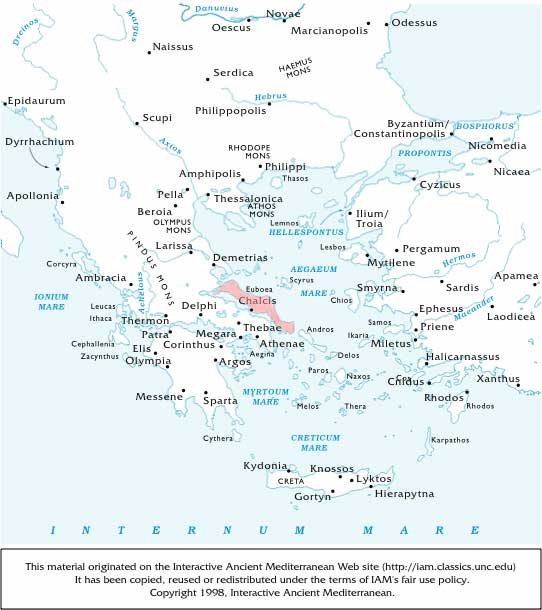
Now Negropont; the largest island of the Aegaean Sea, lying along the coasts of Attica, Boeotia, and the southern part of Thessaly, from which countries it is separated by the Euboean Sea, called the Euripus in its narrowest part. Its early name was Macris. Euboea is about ninety miles in length; its extreme breadth is thirty miles, but in the narrowest part it is only four miles across. Throughout the length of the island runs a lofty range of mountains, which rise in one part as high as 7266 feet above the sea. It contains, nevertheless, many fertile plains, and was celebrated in antiquity for the excellence of its pasturage and corn-fields. According to the ancients it was once united to Boeotia, from which it was separated by an earthquake. In Homer ( Il.ii. 536) the inhabitants are called Abantes, and are represented as taking part in the expedition against Troy. In the northern part of Euboea dwelt the Histiaei, from whom that part of the island was called Histiaea; below these were the Ellopii, who gave the name of Ellopia to the district, extending as far as Aegae and Cerinthus; and in the south were the Dryopes. The centre of the island was inhabited chiefly by Ionians. It was in this part of Euboea that the Athenians planted the colonies of Chalcis and Eretria, which were the two most important cities in the island.After the Persian Wars Euboea became subject to the Athenians, who attached much importance to its possession; and consequently Pericles made great exertions to subdue it, when it revolted in B.C. 445. Under the Romans Euboea formed part of the province of Achaea. See Bursian, Topogr. von Euboia (1859). (Harpers Dictionary of Classical Antiquities, 1898)
